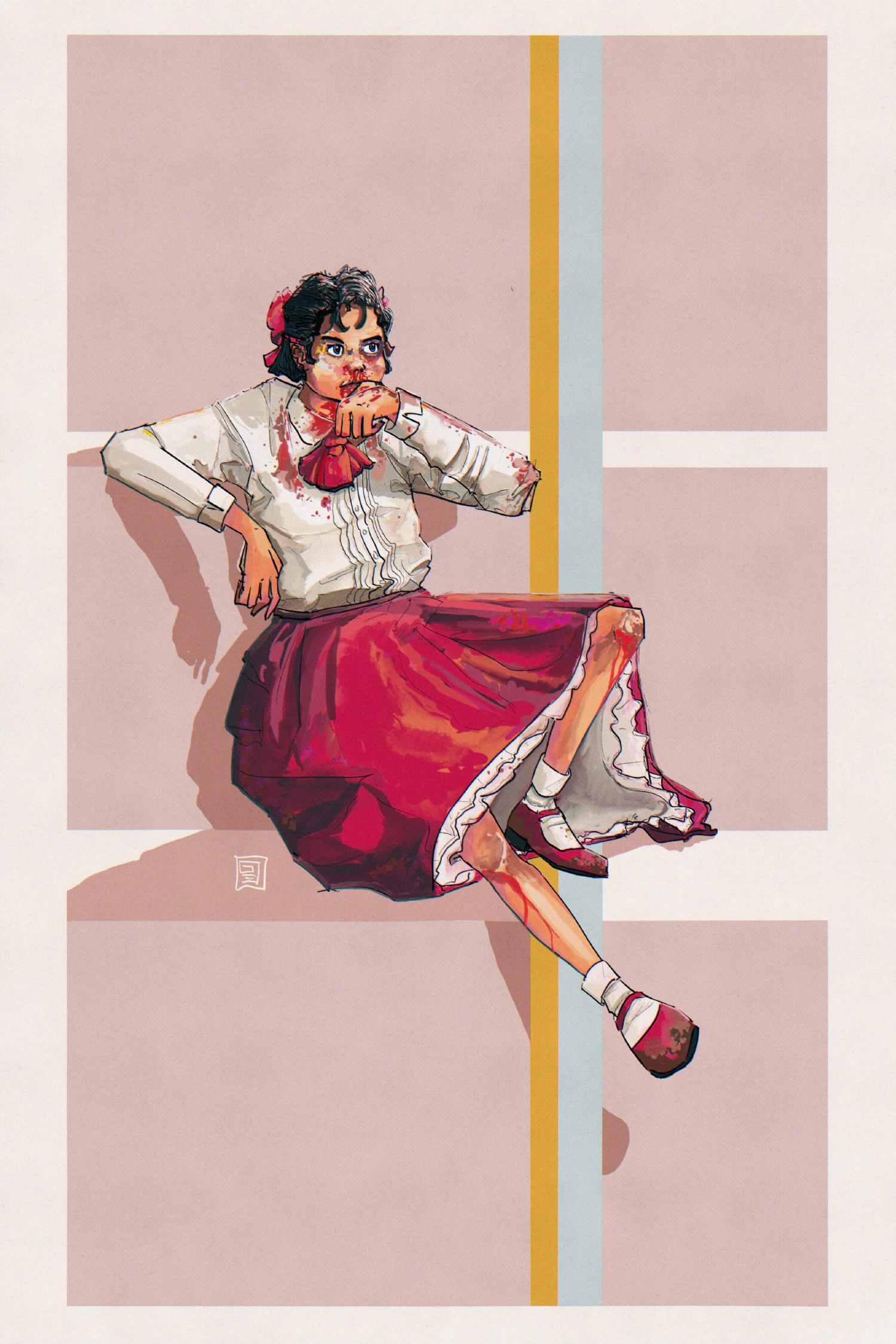NEW Story: Sunday Morning
All That’s Solid Melts into Zelda

This article is not part of Vekllei canon. It may be old, obsolete or just a bit of fun.
✿ This article was featured in Issue #6 of the Atlantic Bulletin
My nerves are like overused sandpaper—all dull; only the eye-catching, bizarre and grotesque can excite me now.
Tanizaki Junichirō, 1918
The wind had died and it seemed that she would follow it. Crazy shadows distorted beneath car headlights. It occurred to her in some way that, as she approached dying, she was living out the ultimate dramatic fantasy of the American misplaced girl, in the same way the townsmen were fulfilling their grotesque constellation of death by murdering women. To them, she was not Zelda, or an agitator, or even a maid from Motel Grande; she was just a girl of girl-form, washed out; beat in; bent before the death-bridge where the creek rolled on below. It was brutal and violent, and also the most tacky thing. It scaled up and down, because it was murdering.
The hearts of America are like overused sandpaper — all dull. This is how it played out in 2063, ages into the Great American Decline and well before it was put down like a sick dog by Chinese methods. The worn out bodies of the hedonistic coasts were numb to the spectacle of collapse and found themselves displaced and unfeeling, and so the neurotic motions of vampiric culture barons responded. In 2036, long before the Dallas Secession or Zelda’s birthday, the NBC under the Radio Corporation of America broadcast the first televised execution in the United States of child serial killer Wayne Graham. This enticed similar coverage across all major television networks for subsequent executions, which were viewed by millions of Americans. The format culminated in NBC’s The American Justice Show programme, in which the method and subject of broadcasted executions were made participatory by public poll. It was tremendously successful but was cancelled in 2041, after the botched death of George Kovacs.
This is not necrotic; this is neurotic; it is the ultimate sucking up of human desire into the commodity-form, and it was only the beginning. It is not just a poetic coincidence that the cancellation of American Justice saw the legalisation (or at the very least, decriminalisation) of prostitution in all regions but the Deep South over the next decade (which would contribute to the eventual secession). This is pleasure in its raw form, and the murder of prostituted immigrant-labourers and the eroticisation of the death of Wayne Graham’s teen-age victims was one and the same. The necroticisation would arrive later, as modernity tumoured and pleasure outpaced the sovereignty of the federal government.
Here was Zelda, who was a perfect caricature of the real American in the 21st century — born overseas, poor as shit, and dressed up for dying. And why shouldn’t she die? All the old things were dead. God, kings, outrage, empathy, optimism — it was all thrown in the creek, with the rest of the immigrant-labourers. Why shouldn’t a child and her sensitivity be among them? You could change the channel on television and see pornography and the brutal violence of the Secession adjacent to each other. If you clicked the knob back and forth fast enough, they could become one and the same.
Tzipora was the last to arrive and among the first to be lynched, and maybe they would make postcards out of her dead body. She couldn’t even wonder this in her terror; the thought would only occur to her much later. It seemed like the whole Great American Decline, in all its hungry decomposition and hedonism was leading to this single moment — and all that was once solid melts into Zelda.
